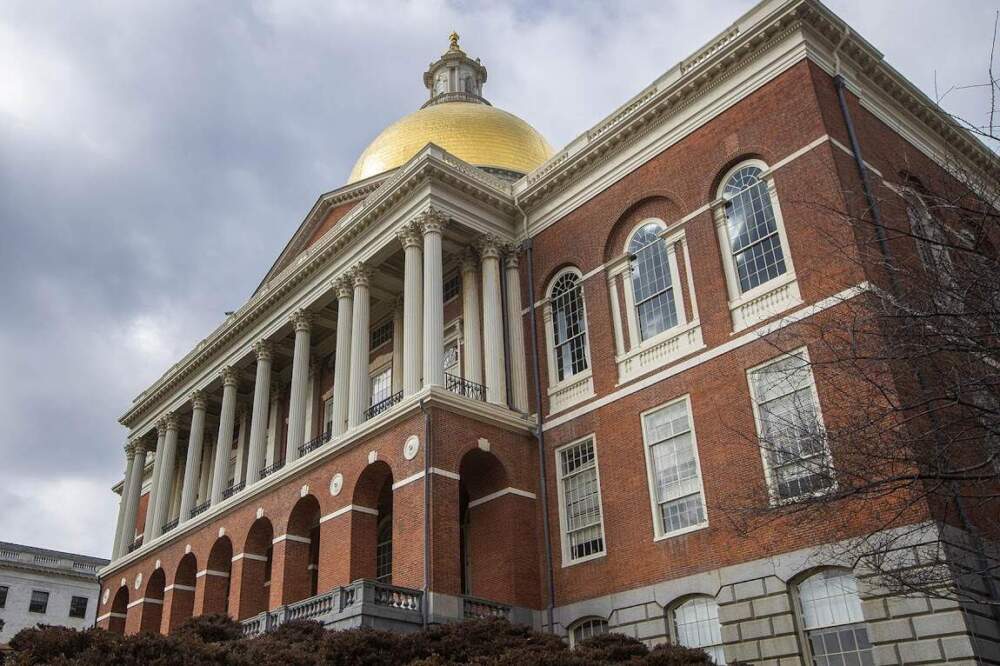Advertisement
Boston's Morning Newsletter
3 key differences between the Mass. House and Senate gun bills

Editor's Note: This is an excerpt from WBUR's daily morning newsletter, WBUR Today. If you like what you read and want it in your inbox, sign up here.
TGIF! Ms. G is a little under the weather right now, so I guess we’ll have to bank on that unreliable Pennsylvania groundhog.
To the news:
Inside the dome: Massachusetts House and Senate lawmakers will now work to compromise on this year’s hallmark piece of legislation: gun reform. Last night, the Senate officially passed its big gun bill on a 37-3 vote, following suit after the House approved its own version in October. State House leaders have made gun reform a key issue this session, after the Supreme Court’s 2022 Bruen decision upended many states’ gun laws. And as WBUR’s Walter Wuthmann reports, the two bills have a lot of overlap, but there are some key differences that will need to be hashed out before anything is sent to Gov. Maura Healey’s desk.
- The House bill — which is almost 100 pages longer — would further expand the list of people who can ask a court to suspend someone’s gun license under the state’s “red flag” law. While both versions include family, medical providers and social workers, the House bill adds school administrators and employers to that list.
- Both bills would ban people from carrying firearms in government buildings, but the House version extends that ban to polling places, too. Meanwhile, the Senate bill would let cities and towns opt out of the ban. (Both versions have a carveout for police.)
- The Senate added a provision in their bill that would ban the gun industry from advertising to minors and allow anyone who “suffered harm” as a result of violating that to sue the companies.
Scrambling your ski vacation: Newton’s School Committee voted last night to cancel February vacation in order to hold makeup school days, as the city’s teacher strike means no classes for the 11th straight day today. The move comes as a surprise after Superintendent Anna Nolin proposed first holding makeup days over April break. But as WBUR’s Carrie Jung reports, school committee members said they couldn’t risk not being able to make up missed days. (Acknowledging that some families may have non-refundable vacation plans, the committee agreed to not penalize students who miss the make-up days.)
- Meanwhile: The Healey administration is getting involved in what they call an “unacceptable” disruption, asking a judge to force both sides into binding arbitration if the strike doesn’t end today.
Wu-town: Boston Mayor Michelle Wu’s new pilot program granting Boston Public School students free admission to certain local museums and attractions twice a month has inspired a fellow mayor to follow suit. Worcester Mayor Joe Petty is asking his city manager to research the feasibility of allowing public school students and their families free admission once or twice a month at the Worcester Art Museum, the Ecotarium and the Worcester Historical Museum. Petty told WBUR’s Solon Kelleher the opportunity would be “great” for the city’s students and “great for the institutions, too.”
- Heads up: Wu’s pilot program kicks off this Sunday and will continue on the first and second Sundays of each month. BPS students and their families will get free admission at a handful of local museums, plus the New England Aquarium and Franklin Park Zoo (just bring your school ID). Solon has more details here.
What you won’t see at the MFA: The Museum of Fine Arts in Boston will soon remove eight Native American objects, due to new federal regulations that require institutions to get tribes’ prior consent before displaying certain cultural items (like sacred objects or items from burial grounds). MFA leaders say the objects include two pottery vessels, five musical instruments and one textile.
- The MFA plans to remove the objects in the “coming weeks.” They won’t be displayed until museum leaders talk to tribal representatives about the “appropriate next steps.”
- Zoom out: The new rules have also led several Western Massachusetts museums to pull objects from display, too.
The Trustees of Reservations is laying off about 10% of its staff — a total of 30 workers — as the local conservation nonprofit grapples with a multimillion dollar structural deficit.
- Trustees spokesperson Mary Dettloff said the group significantly expanded programming during the pandemic, but then inflation and supply chain issues “hit us really hard.” While the group is not closing any properties, they will scale back some operations.
P.S.— Where did Gov. Maura Healey administration open Boston’s first overflow shelter site this week? Take our Boston News Quiz and test your knowledge of this week’s stories.
